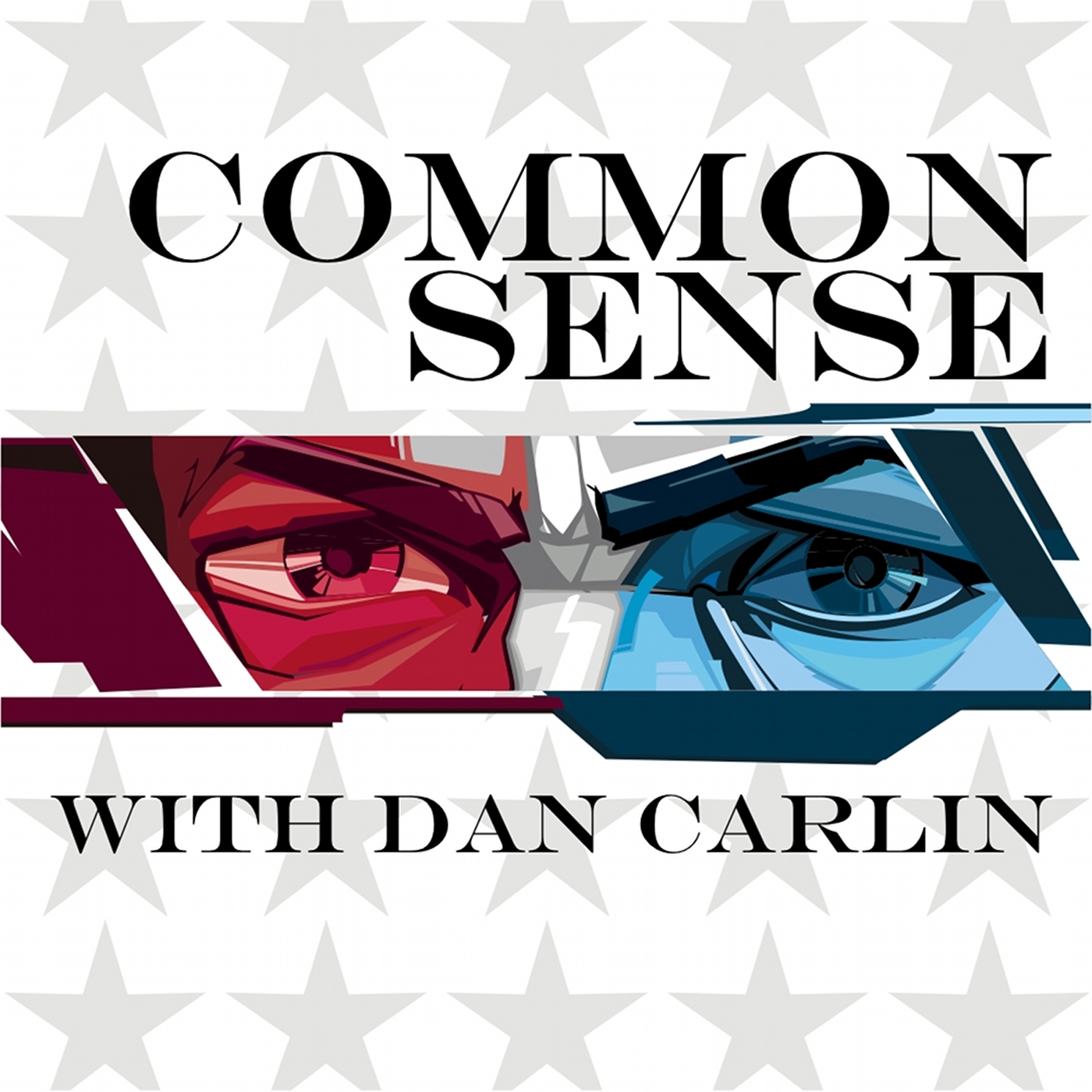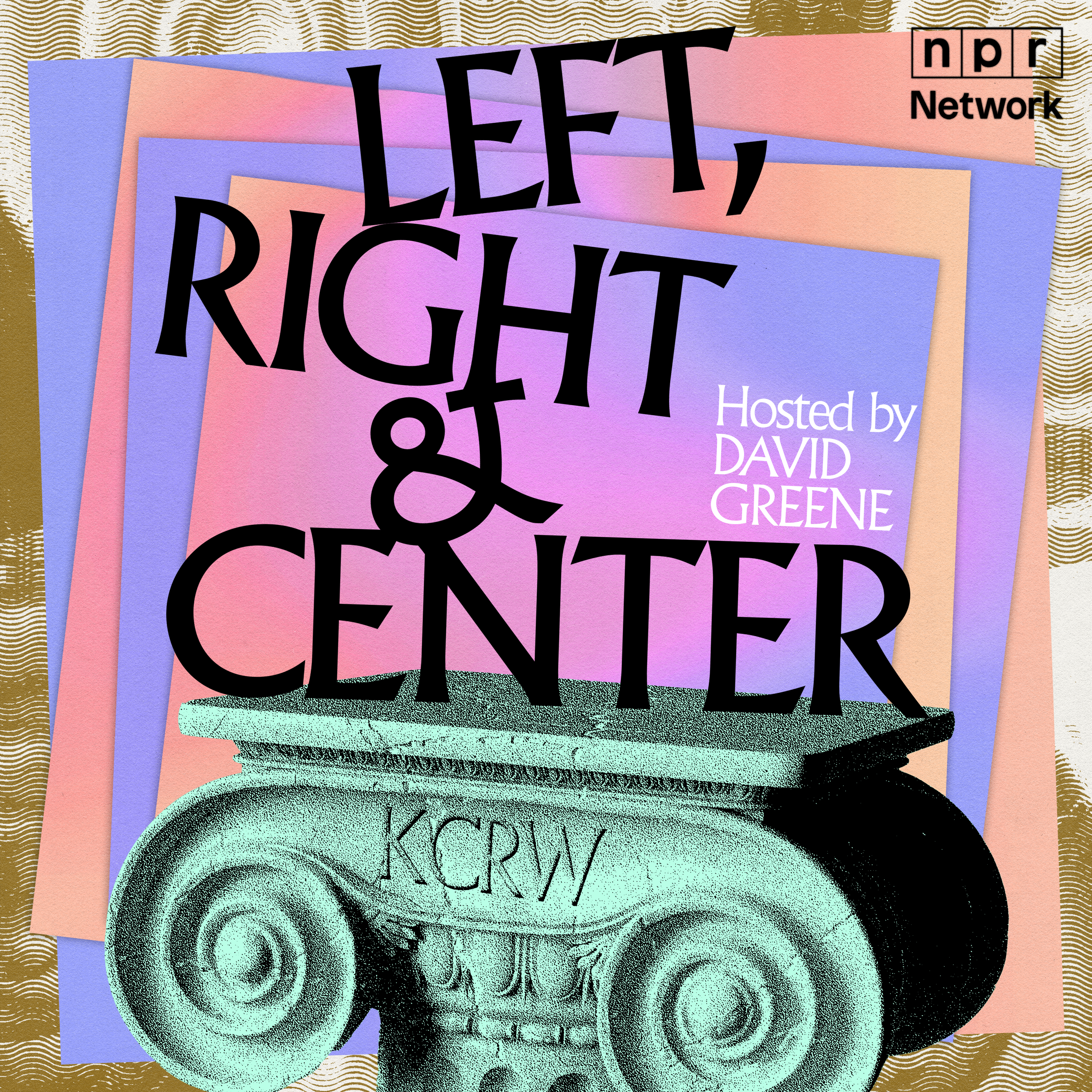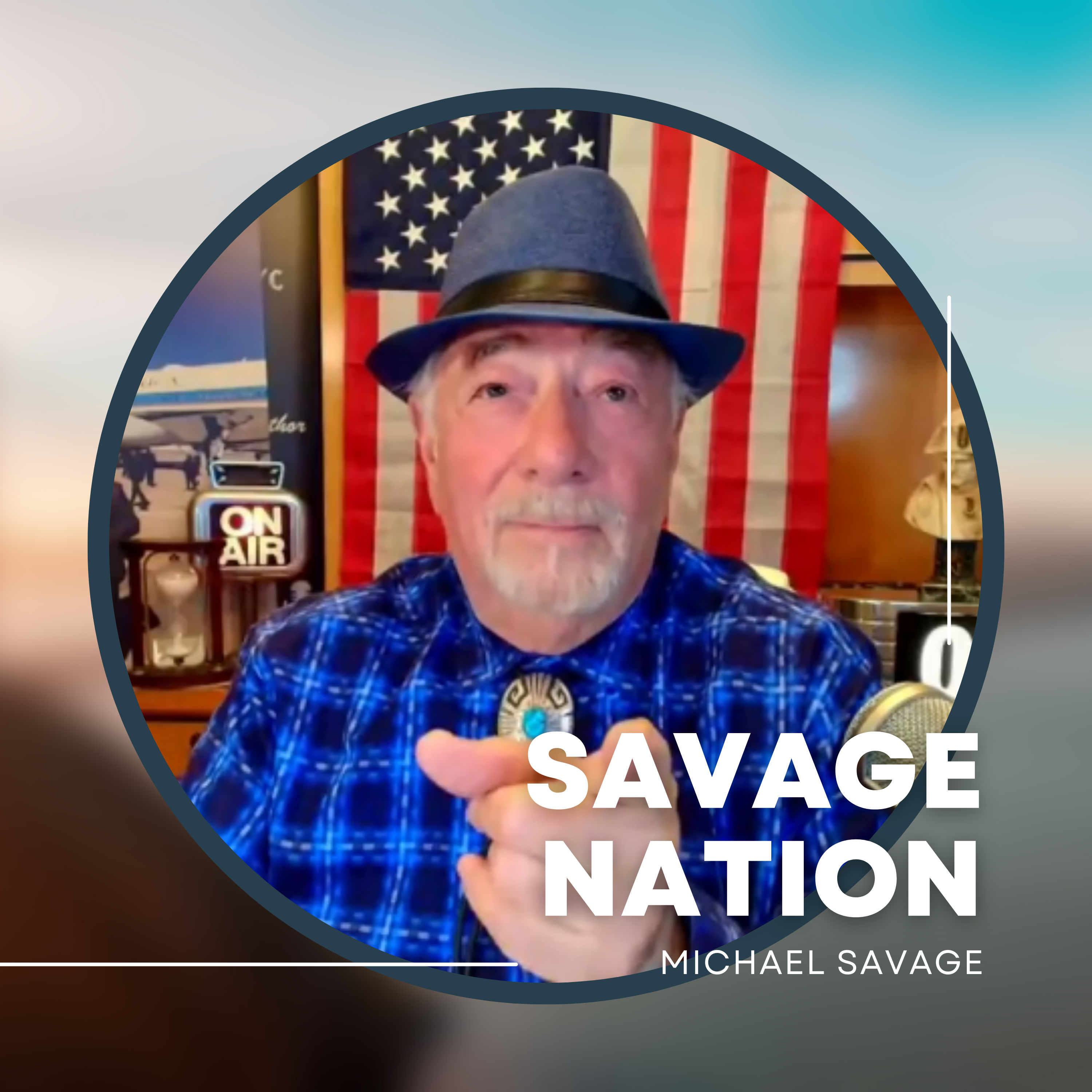
A Think First Podcast with Jim Detjen
Think First is a short-form podcast that makes you pause — before you scroll, share, or believe the headline.
Hosted by Jim Detjen, a guy who’s been gaslit enough to start a podcast about it, Think First dives into modern narratives, media manipulation, and cultural BS — all through the lens of gaslighting and poetic truth.
Some episodes are two minutes. Some are ten. It depends on the story — and the energy drink situation.
No rants. No lectures. Just sharp questions, quick insights, and the occasional laugh to keep things sane.
Whether you’re dodging spin in the news, politics, or that “trust me, bro” post in your feed… take a breath. Think first.
Visit Gaslight360.com/clarity to sharpen your BS filter and explore the 6-step clarity framework.
🚨Distorted (Advanced Copy) is set to release on October 14, and pre-orders are now available on Amazon and Barnes & Noble.
Reserve your copy today — and join me in cutting through the distortion.
Paperback and Kindle: Amazon
Hardcover: Barnes & Noble
A Think First Podcast with Jim Detjen
#74 Walter Russell and the Gaslight of Science: Madman, Mystic, or a Thousand Years Too Soon?
In 1921, artist-turned-polymath Walter Russell claimed to spend 39 days in a coma-like “illumination,” tapping the very “source of all knowledge.” His revelations became The Universal One — a sweeping vision of reality as crystallized light, consciousness, and rhythm. Nearly every scientist dismissed him as mad. Except Nikola Tesla.
This episode unpacks the gaslighting Russell faced, the poetic truths that turned him into a cult prophet, and what his story reveals about how science treats outsiders. From Galileo to Semmelweis to Tesla, the distortion cycle repeats: ridicule, myth, and a carefully rewritten history.
Was Walter Russell a crackpot sculptor… or a prophet a thousand years too soon? And what does his story teach us about spotting distortion in the stories we’re told today?
Based on themes from Jim Detjen’s new book Distorted: How Gaslighting and Poetic Truth Bend Our Perception of Reality.
Stay sharp. Stay skeptical. #SpotTheGaslight
Read and reflect at Gaslight360.com/clarity
Picture this. New York, 1930. The New York Times prints a letter from an American artist named Walter Russell, a man better known for sculpting Mark Twain and painting presidents. But this time he's not showing off marble or oils. He's challenging Isaac Newton. Russell writes that gravitation as we know it is wrong, that matter isn't what we think it is, that everything, rocks, rivers, even your body, is just compressed light, shaped by thought. Within days, the scientific establishment swats him down, professors fire back in the letters page, editors take a tone somewhere between bemused and, is this guy serious? The cultural verdict? Russell is dismissed as a crank. Now, here's the tension. Why do we call someone mad in one generation and visionary in the next? Why do institutions sell us the story that science is an open marketplace of ideas when history shows us the stalls are often padlocked? And why do we cling to the romantic myth, the poetic truth, that maybe humanity just wasn't ready yet? Walter Russell's 39-day Illumination, his 1926 manuscript The Universal One, and his quiet meeting with Nikola Tesla, they're a case study in gaslighting and poetic truth colliding head on. This is Think First, where we don't follow the script. We question it. Because in a world full of poetic truths and professional gaslighting, someone's gotta say the quiet part out loud. In May of 1921, an American polymath named Walter Russell disappeared into silence. For 39 days he lay in what he called an illumination, a coma-like state where, he claimed, his mind touched the source of all knowledge. When he returned, he didn't ease back in. He exploded, page after frantic page, sketches, formulas, metaphysics, wave patterns, even cosmology. It became the bones of a massive manuscript called the Universal One. He mailed it to the great minds of his day, 500 of them, by his own account. Nearly all dismissed him as mad, except one, Nikola Tesla, the visionary who knew a thing or two about being ahead of your time. Tesla was so struck that he told Russell to lock it away, to seal it for a thousand years. Humanity, he warned, wasn't ready. And what was it we weren't ready for? That matter isn't solid, but crystallized light, slowed and shaped by thought, that the universe isn't material, but mental, pulsing in waves of expansion and contraction like breath. That good and evil are illusions, everything seeking balance, that death is just light, uncompressed, returning to its source, that time itself isn't linear, but spiral, past, present, and future coexisting. He even claimed electricity wasn't electrons but a living spiral of energy. That space itself was not empty, but a sea of untapped potential. For Russell, health was rhythm. Disease was imbalance. Reality itself was mind. In 1926, this made him a crank. Today, some call him a prophet. And between those two poles, the gaslight and the poetic truth, sits the distortion. Because the real story isn't just about Walter Russell, it's about how power decides what's ready, how institutions protect themselves with ridicule, and how admirers protect their prophets with myth. Most of us grow up with the fairy tale version of science. The story goes like this science is self-correcting, objective, and ruthlessly open to new evidence. If you've got the data, if you've got the experiment, the system will reward you. That's the poetic truth. It's comforting. It flatters our institutions. But history tells another story. Ask Galileo, threatened with torture for daring to place the sun at the center. Ask Semmelweiss, fired and mocked for suggesting doctors should wash their hands before delivering babies. Ask Walter Russell, lampooned for saying matter was crystallized light. Different masks, same puppet master. The system doesn't just ignore outliers, it gaslights them. It says, if you don't have credentials, you don't have credibility. It says, if you don't publish in our journals, you don't exist. It says, your genius is madness until we can repackage it without crediting you. And here's the setup. When you watch how institutions treat people like Russell, you start to see the distortion. The gaslighting? The shaming and blame shifting that keeps the establishment safe? The poetic truth? The cozy bedtime story that science is always fair in the end. So let me ask, what makes an idea too early? Who decides when humanity is ready? Why do we crucify visionaries and then canonize them later? And is the story of science itself a gaslight? This isn't just history, you see it now in debates about AI, medicine, and energy. Dismiss the outsider, smooth it later. That's the distortion pattern, and it's exactly the kind of pattern I track in distorted. This is the same playbook we've run for centuries. Galileo in 1633. We don't need to look through your telescope. The consensus has spoken. Semmelweiss in 1847. Wash our hands? Absurd. You're the lunatic here. Russell in 1926. Compressed light? Please. Stick to your sculpture. Different centuries. Same script. And here's the kicker: the gaslight always comes wrapped in authority. The credential, the journal, the podium, the robe. It tells the public, trust us, he's the crazy one. That, my friends, is the story we're sold. That science is a shining meritocracy. When in reality, it's a human institution, every bit as political as Congress or Hollywood. And when the establishment gaslights the visionary, what story do the admirers tell to make sense of it? The poetic truth. The comforting myth that humanity just wasn't ready, that the prophet was a thousand years ahead. That Tesla himself whispered to Russell, seal this in a vault. The world isn't ready yet. Now, did Tesla really say that? Yes. At least according to Russell's wife Lau, who recounted the meeting in 1956. There's no Tesla letter, no primary archive, but the story has stuck for decades. Why? Because it's neat. It flatters us. It gives us a reason the world didn't listen. That's how poetic truth works. It's not necessarily a lie, it's a story that smooths the discomfort. And that's what I unpack and distorted. The system gaslights the heretic. The fans invent a legend to cover the wound. Both stories bend reality. So, what did Walter Russell actually claim? And has any of it held up? Receipt number one. Matter is crystallized light. Russell argued that everything we call matter is just slowed down light, compressed by thought. Modern physics? We do talk about mass-energy equivalents, fields, excitations. But not that way. No physicist today teaches thought molds light into atoms. That's Russell, not Einstein. Receipt number two. The universe is mental, not material. He said mind is the true substance. Matter is just effect. That's pure metaphysics. Science doesn't sign off. But here's the echo. In consciousness research, some philosophers ask whether mind is fundamental. Panpsychism, integrated information theory. You can see why Russell's words still resonate on the edges. Receipt number three cycles of expansion and contraction. The cosmos, he said, breathes. Life and death, night and day, waves. Mainstream science? We do model oscillations. Some cosmologists explore bouncing or cyclic universe theories. Echoes again. But Russell's diagrams, spiral periodic tables, cosmic waves, remain fringe. Receipt number four. Electricity is not electrons but a living spiral of energy. Nope. Flatly contradicted by modern physics. Receipt number five. Death is the release of compressed light. That's poetry, not biology. Receipt number six. Time is not linear, but spiral. Science. Time is relative, shaped by gravity and velocity. Spiral? Not in the equations. So, do we see resonances? Yes. Vacuum energy sounds like his sea of potential. The observer problem in quantum mechanics sounds like his mind shapes reality. But actual proof? No. Now, let's widen the frame. Galileo, house arrest for suggesting Earth moves around the sun. Semmelweiss dies in an asylum, mocked for hand washing. Russell, dismissed as crank for saying matter is light. In each case, the gaslight sounded the same. The science is settled. The consensus is secure. You, sir, are mad. And in each case, the poetic truth followed. History will vindicate him. We weren't ready. That's the distortion cycle. Gaslight, dismiss, smooth. And here's where distorted comes in. We cling to both stories because they make us feel safe, safe that authority is competent, safe that visionaries will eventually be vindicated. But what if both are wrong? What if Galileo was right, but not because the system later admitted it? What if Semmelweiss was right, but only decades after he was buried? What if Russell's poetry will never be physics? And that's okay? The danger isn't just ignoring the visionary, the danger is buying the story that explains away the discomfort. Before we dive back in, a quick word about the project that's bigger than this podcast. What if the biggest lies you've been told weren't lies at all? What if they were stories? Comforting stories, soothing myths, the kind of poetic truths that feel good, even when they're not true. That's the game. Politicians do it, media does it, institutions do it. They don't just lie, they distort. They gaslight you with shame, they cradle you with bedtime myths, and that gap between perception and reality is where we're losing the plot. That's why I wrote Distorted how gaslighting and poetic truth bend our perception of reality. It's not another self-help book, it's a survival manual, a guide for spotting the tricks, dodging the spin, and refusing to outsource your thinking. Early access is open now. Find it at Barnes Noble, Amazon, and at gymdechin.com. And if you do grab a copy, here's my one ask: leave a review. Because the world isn't short on lies. It's drowning in distortions. Alright, back to the show. Now, let's steel man the establishment. Why did scientists dismiss Russell? Because he had no math, no experiments, no falsifiable predictions. And honestly, that matters. Peer review, replication, standards, these are the guardrails that keep science from sliding into chaos. If every mystic sketchbook was taken seriously, you'd drown in nonsense. Semmelweiss had data, Galileo had telescopes, Russell had visions and diagrams. So you can see why the system said no. But here's the paradox. The more ahead of your time you are, the more you'll sound insane to the present. I call this the paradox of the prophet. If your ideas are just one step beyond the consensus, you're a reformer. If they're five steps beyond, you're a revolutionary. If they're fifty steps beyond, you're a madman. And until the world catches up, the prophet looks indistinguishable from the crank. That's the paradox. And it's why gaslighting and poetic truth keep colliding in stories like Russell's. The establishment gaslights. You're insane. The fans counter with poetic truth. He's just too far ahead. And reality sits somewhere murky in the middle. This is exactly why I wrote distorted. To show that both gaslighting and poetic truth are distortions. Different masks, same puppet master. So, how do you spot the distortion next time? Three tells of science gaslighting. One, credential shaming, dismissing the person, not the idea, you're not one of us. 2. Moving goalposts. Show more proof. Now more. Now more again. 3. Narrative laundering. When the system eventually admits it, they rewrite history so it looks like they were always open. And two signals to watch for. 1. Consciousness research. Serious labs exploring whether mind plays a role in physics. Not mysticism, but not settled either. 2. Cyclic cosmology, bounce models, loop quantum gravity. No proof yet, but if it advances, Russell's cosmic breath metaphor might get a second look. That's your field guide. Straight out of distorted. Walter Russell, the sculptor who claimed to tap the source of all knowledge, ignored by scientists, embraced by mystics, gaslit by the establishment, draped in poetic truth by admirers. And maybe that's the real story. Not whether he was right or wrong, but how the stories about him distort our view of science itself. Because when you strip it down, the distortion is always the same. Institutions protect themselves with shame. Cults of personality protect the visionary with myth. And the truth, whatever it is, gets lost in the fog. That's why I wrote Distorted. Because we live in that fog every day, in politics, in media, in the culture. The trick isn't just the lie, it's the story we accept to make it easy to live with. So next time you hear someone dismissed as crazy or someone lionized as a prophet, ask yourself who benefits from the distortion? Because you don't need all the answers, but you should question the ones you're handed. Until next time, stay skeptical, stay curious, and always think first. Want more? The full six-step framework we use is at gaslight360.com. You can also dive into the deeper story, the bio, the podcast, and the mission at jimdechen.com. And if you like this one, tag it, save it, share it. On X at SpotTheGaslight. Hashtag spotTheGaslight.
Podcasts we love
Check out these other fine podcasts recommended by us, not an algorithm.

The Megyn Kelly Show
SiriusXM
Hidden Brain
Hidden Brain, Shankar Vedantam
The Tucker Carlson Show
Tucker Carlson Network
Cato Podcast
Cato Institute
The Joe Rogan Experience
Joe Rogan
Common Sense with Dan Carlin
Dan Carlin
The Clay Travis and Buck Sexton Show
iHeartPodcasts
Revisionist History: The Alabama Murders
Pushkin Industries
Freakonomics Radio
Freakonomics Radio + Stitcher
Fearless with Jason Whitlock
Blaze Podcast Network
The Daily Beans
MSW Media
The Glenn Beck Program
Blaze Podcast Network
Countermine
Dondi&Karlin
The Shawn Ryan Show
Shawn Ryan
Left, Right & Center
KCRW
Political Gabfest
Slate Podcasts
Stuff You Should Know
iHeartPodcasts
TED Talks Daily
TED
The Fifth Column
Kmele Foster, Michael Moynihan, and Matt Welch
The Jesse Kelly Show
iHeartPodcasts
The Jordan B. Peterson Podcast
Dr. Jordan B. Peterson
